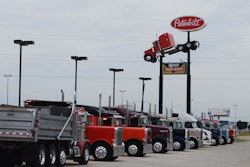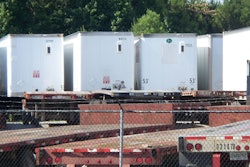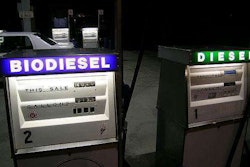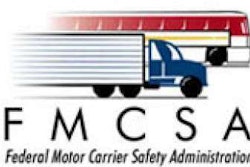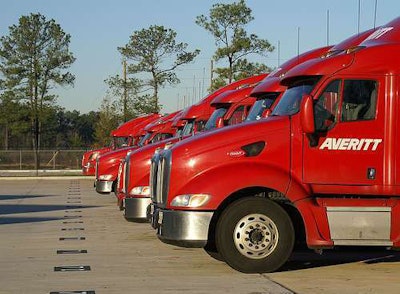
Averitt Express has announced the beginning of its “Ford F-150 4×4 Fuel Duel” program, an initiative aimed at offering incentives to its associates who follow fuel-efficient practices. As part of the program, Averitt will be giving away 20 $500 gas cards and one fully loaded 2010 Ford F-150 4×4 truck.
The program is open to all Averitt drivers, who have been grouped into teams for scorekeeping. To be eligible, a team must make a collective improvement in its fuel economy between a six-month period this year versus the same time period last year. All drivers on a team that meets or exceeds the goal will be entered into a drawing for a chance to win either a gas card or the truck.
In order to make the goal, individual drivers will focus on various fuel-efficient practices such as reducing truck idling, using smooth-shifting techniques, traveling at slower speeds and maintaining proper tire pressure at all times. Averitt tractors are equipped with sophisticated technology that measures miles per gallon, allowing every driver’s fuel efficiency to be calculated. Averitt plans to announce the winner of the Ford F-150 4×4 truck sometime in December.
The ‘Fuel Duel’ program marks the second time Averitt has used incentives to encourage its associates to actively participate in resource conservation efforts. In 2008, Averitt’s “Smart Car for Smart Thinking” program helped the company challenge its associates to find creative ways to reduce their consumption of electricity, water, paper and fuel.
According to Scott Wolf, Averitt’s vice president of corporate services, the continually rising cost of fuel was the impetus behind creating the “Ford F-150 4×4 Fuel Duel” program. “We realize that our best option to combat against the ever-rising cost of fuel is to find ways to improve how efficiently we use it,” Wolf says. “We believe the ‘Fuel Duel’ will help bring more awareness to the important role our drivers play in our fuel conservation efforts and create long-term conservation habits.”

